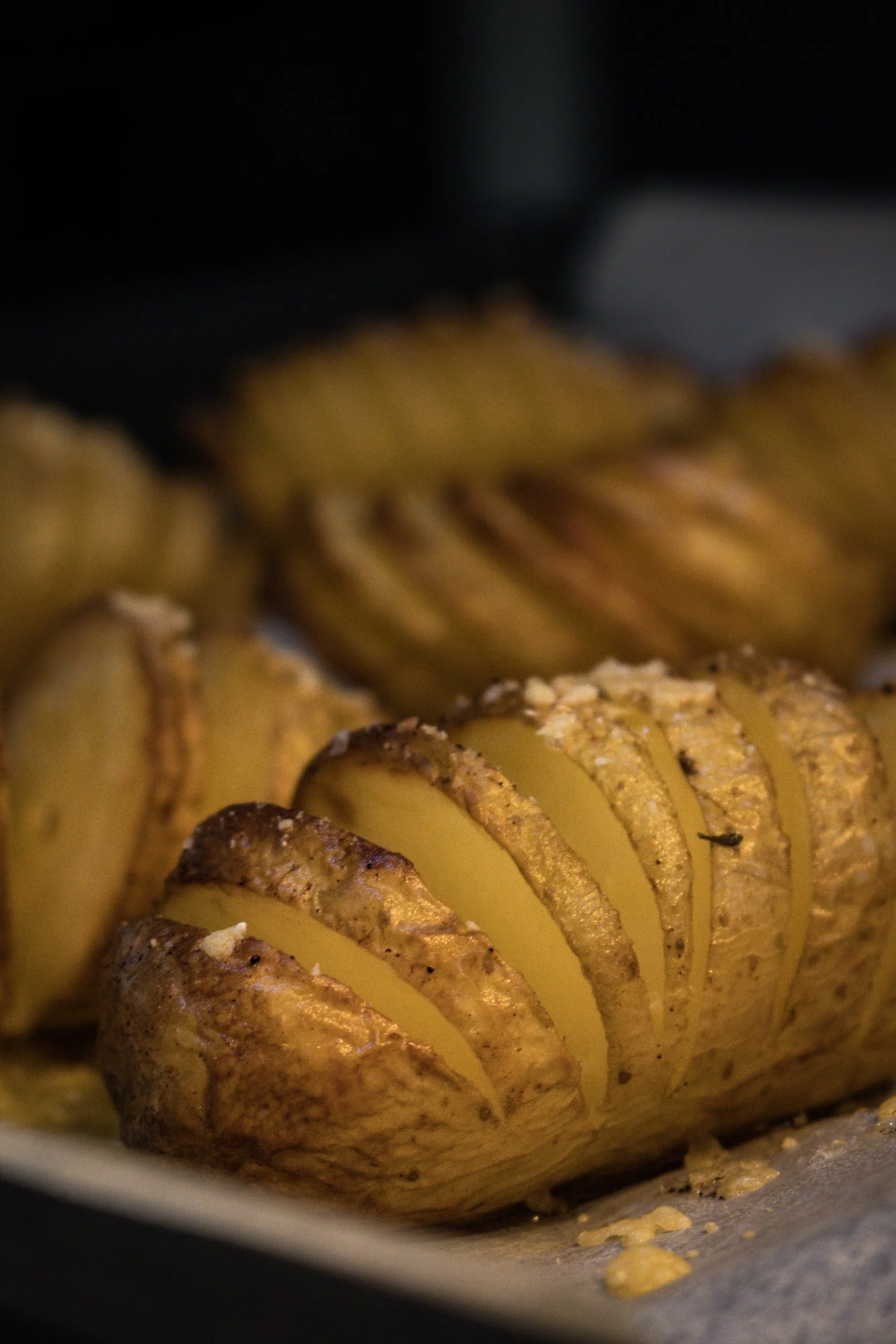Big Bad Potatoes?
Real World Nutrition Podcast Episode 7: Five Real World Nutrition Thanksgiving Tips
Baked potato has protein, calcium, and potassium.
What’s Wrong with Potatoes?
Have you ever heard of any of these statements about potatoes?
Potatoes are the same as just eating sugar.
Potatoes are full of sugar.
Potatoes turn to sugar.
All are saying the same thing – and I tend to roll my eyes when I hear this. Like many things regarding nutrition, there is a little truth to this, but not really.
First, compare one cup of sugar with one cup of baked potato flesh (without the skin).
One cup of sugar:
770 calories
192 grams of carbohydrates, no fiber, and all sugar (no starch)
That’s about it.
Well, that cup has about 2 mg calcium and 4 mg potassium.
One cup of baked potato flesh:
113 calories
26 grams of carbohydrates, of which 2 grams of that is fiber and 2 grams of sugar (all naturally occurring) – and the rest is starch. More on that is below.
6 mg of protein
6 mg of calcium
477 mg of potassium (more than a medium banana)
Am I saying one cup of sugar is the same as one cup of baked potato flesh? No. So how is a potato equal to sugar? It isn’t! And let’s be honest: I am not sure who would consume one cup of sugar, but who knows? Cookie dough? Sure. Not sugar.
When it comes to potatoes – what form is it?
French fries
Potato chips
Baked – with butter, sour cream, cheese, bacon, chives, and what else? We call it loaded.
Mashed – with butter, milk or cream, salt, and maybe cheese?
Hash browns – shredded and cooked in fat and salt (and maybe ketchup)
Tater tots – are these baked or fried? I had to look this up. They are first fried, and we tend to bake them to reheat them.
I often tell people that the potato isn’t the problem, but what we DO TO THE potato is where things start to go awry.
It isn’t the potatoes! So stop blaming the potato for the corruption we have placed on it.
Now the other big thing is that we rarely eat potatoes all alone. It is usually part of a meal.
Where are all those carbs? If the potato is 26 grams of carbs with 2 grams of fiber and 2 grams of sugar, what makes up the other 22 grams of carbohydrates?
Starch is another type of carbohydrate and one people often forget about. In the process of digestion, starch breaks down into individual sugar (glucose) units, but because starch is such a LONG chain of glucose units, it takes more time to break down than consuming plain sugar.
When other nutrients, especially fiber, are in the mix, this will slow the process of digestion down even more. (A good thing.)
Here is some more information on the nutrients in potatoes.
They have vitamin C and vitamin B6 and the minerals potassium and magnesium. They are also naturally fat-free and low in sodium. And, of course, like all plant foods naturally cholesterol-free and vegan. And because they do not contain wheat, barley, or rye? Gluten-free too.
Most healthy adults can eat potatoes without worrying about the “sugar” spike when potatoes are eaten as part of a meal.
Here is my favorite way to cook and eat potatoes (as a side dish that is less than 25% of the meal):
Oven Roasted Potatoes
2-4 potatoes diced into ½ inch pieces (better if you don’t peel them, but do wash the heck out of them)
1 Tablespoon olive oil
1 teaspoon fresh rosemary or 2 teaspoons dry rosemary (cut it up to get the flavor out)
1-2 garlic cloves (minced)
½ teaspoon black pepper
¼ - ½ teaspoon salt (any type)
Directions:
Preheat the oven to 400 degrees. Line a baking sheet with parchment paper or foil sprayed with cooking spray.
Toss the potatoes in a large bowl with oil and seasonings to evenly coat potatoes. Try different herbs or spices to taste, like chili powder, cumin, curry powder, oregano, or one you like.
Spread potatoes onto the baking sheet in a single layer.
Roast for 30 minutes – tossing halfway through to get even roasting on both sides.
This recipe is a side dish. The number of potatoes used will depend on the type of potato chosen. Large russets may need one or two potatoes for four people. Small white or red potatoes may need 2-3 potatoes per person.
A medium potato is about the size of a computer mouse, which can help you gauge what may be enough for your recipe. If you have many more potatoes that will fit in a single layer on your baking sheet, use two baking sheets and switch oven racks halfway through the baking time.
Now enjoy these nutrient-dense plant foods without the guilt of thinking they are “all sugar.”

